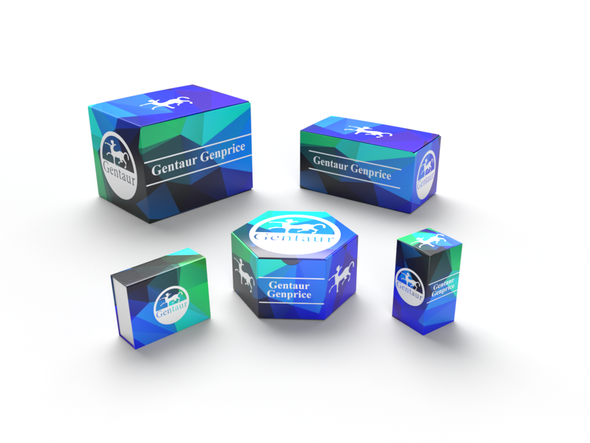Description
ACE Antibody | 63-208 | Gentaur UK, US & Europe Distribution
Host: Rabbit
Reactivity: Human, Mouse
Homology: N/A
Immunogen: This ACE antibody is generated from rabbits immunized with a KLH conjugated synthetic peptide between 1274-1306 amino acids from the C-terminal region of human ACE.
Research Area: Cancer, Cell Cycle, Obesity, Signal Transduction
Tested Application: WB
Application: For WB starting dilution is: 1:1000
Specificiy: N/A
Positive Control 1: N/A
Positive Control 2: N/A
Positive Control 3: N/A
Positive Control 4: N/A
Positive Control 5: N/A
Positive Control 6: N/A
Molecular Weight: 150 kDa
Validation: N/A
Isoform: N/A
Purification: This antibody is prepared by Saturated Ammonium Sulfate (SAS) precipitation followed by dialysis
Clonality: Polyclonal
Clone: N/A
Isotype: Rabbit Ig
Conjugate: Unconjugated
Physical State: Liquid
Buffer: Supplied in PBS with 0.09% (W/V) sodium azide.
Concentration: batch dependent
Storage Condition: Store at 4˚C for three months and -20˚C, stable for up to one year. As with all antibodies care should be taken to avoid repeated freeze thaw cycles. Antibodies should not be exposed to prolonged high temperatures.
Alternate Name: Angiotensin-converting enzyme, ACE, 321-, Dipeptidyl carboxypeptidase I, Kininase II, CD143, Angiotensin-converting enzyme, soluble form, ACE, DCP, DCP1
User Note: Optimal dilutions for each application to be determined by the researcher.
BACKGROUND: ACE is an enzyme involved in catalyzing the conversion of angiotensin I into a physiologically active peptide angiotensin II. Angiotensin II is a potent vasopressor and aldosterone-stimulating peptide that controls blood pressure and fluid-electrolyte balance. This enzyme plays a key role in the renin-angiotensin system. Many studies have associated the presence or absence of a 287 bp Alu repeat element in this gene with the levels of circulating enzyme or cardiovascular pathophysiologies. Two most abundant alternatively spliced variants of this gene encode two isozymes - the somatic form and the testicular form that are equally active.






